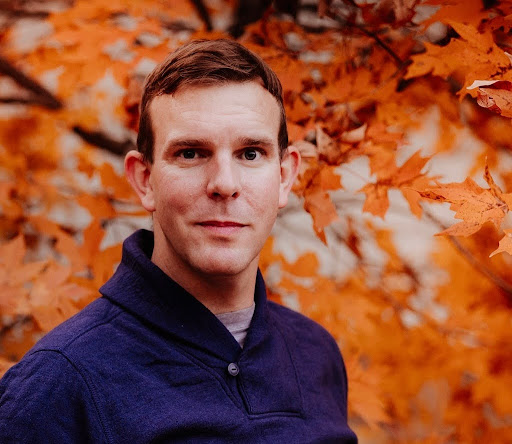
I decided to become a writer early on in my life. I thought I wanted to work in comic books. If I can’t do something, I’m one of those people who gives me the drive to do it even more. I suffer from dyslexia and severe learning disabilities—ADHD as well now—so reading was always a challenge until I got older. I couldn’t read substantially until the 3rd grade. My love of reading took off when I started reading tie-in books for Halo and Star Wars.
Conversely, I could always write. My mother and grandmother were both English teachers. My sentence structure and voice have almost always been there. During my reading journey, I began thinking, I could do this; I could write the words that take place in my head. Commas still baffle me.
The adage is to write what you know. I know crime. I found my authorial voice while working in a jail. The first serious story I wrote involved one of my favorite character creations, which is probably the closest character to me in terms of autobiographical details and thoughts, and sadly, a character most people haven’t been introduced to, Paul-Wayne Collins. The story involved the investigation of a missing kid and a realization that the parents had done something to the kid. The crux of the story was the interview of the parent. The story was written while I worked overnight as a Detention Officer in the Tulsa County Jail. Somewhere during writing that story, my voice (as it is now) exploded onto the page. There was no turning back at that point.
I am now a detective for a suburb of Tulsa. I love learning and listening to people. They fascinate me. I like to know why something happens.
In progressing through my career, I’ve become enthralled with empathy.
When I finished The Olympian (my first novel), editor Jim Thomsen asked me, “Why do you write?” It only took me about fifteen novels (published and unpublished) to figure it out. Empathy.
As far as crime as a genre goes, I like to have my characters tell readers how they feel as opposed to me telling them in interior dialogue. Most authors could write great dialogue by turning interior thoughts into conversational scenes. Because I write characters through dialogue, and through character comes plot, it’s easier to stay in contemporary settings, as far as description and setting.
I also like the idea of crime happening around us. I daydream, and through daydreaming, I imagine a world happening around me that people usually don’t see. I like using “mundane” settings and set pieces to tell tense and exciting stories. I read once that many thriller writers do the global hopping/spanning narratives to give readers an escape. I chose to do the opposite to accomplish the same task.
I love the idea of not keeping anything from the reader and telling the story through multiple viewpoints. Still, in doing so, the reader gets to puzzle out the greater narrative—that’s where the mystery comes in.
I am not doing my job if I cannot kill off a character. If, at some point, I resist what the story is telling me to do versus my intention, I always go with what scares me and what the story is telling me to do. It knows better than I do. I don’t have a starting repeating character, but I do have some favorites that come and go in certain books. They’re safe until they are not.
My first book, The Olympian, and the follow-up American Standard were both difficult but for two different reasons. The Olympian was difficult because it was my first book, and I tried to include too much. American Standard was difficult because I had not learned to let the narrative tell me the story versus forcing the narrative into a story. I learned much about that book, specifically explosive openings and avoiding flashbacks. I learned to tell a straight-line story. It’s more complicated than you think. Flashbacks should be limited, valued, and not used because you aren’t smart enough as a writer to include the information differently.
I write in the present tense because it works for me. I am a detective. I write in past tense all day long because detectives investigate crimes that have already happened. I would love to be able to write in the past tense in my novels, and I believe it would earn me a more significant readership; however, it quickly becomes work and not fun. Present tense allows me to have fun, write creatively, and use jump cuts.
I found I write in chronological order. Sometimes, a scene or chapter is written out of sequence, but for each scene to be truly important to the narrative, it must build upon what’s come before it.
I usually start with two ideas smashed together and motivations for the characters I believe can best tell the story. Then I go from there.
I find outlines limiting and draining and typically don’t stay with them for very long. Not because of anything I do. It’s the characters. They have a mind of their own and don’t like to be told what to do.
The best advice I’ve received about starting a novel is, what is it about? Mainly, what is the theme? What do you want the reader to take away from the experience? What are your characters’ motivations? Why are you doing this? Money and fame—do something different. Because you like talking to yourself and sharing those conversations with others—this is the only way you can do this without people looking at you funny.
As far as what people can expect as they read my work, simply this, they will be entertained. It is my only promise as a writer and my only goal. If readers get something else out of my writing, I’m thrilled, but as far as my goal as a writer…entertainment—I want the reader to finish the books with a satisfied smirk and think it was a journey.

